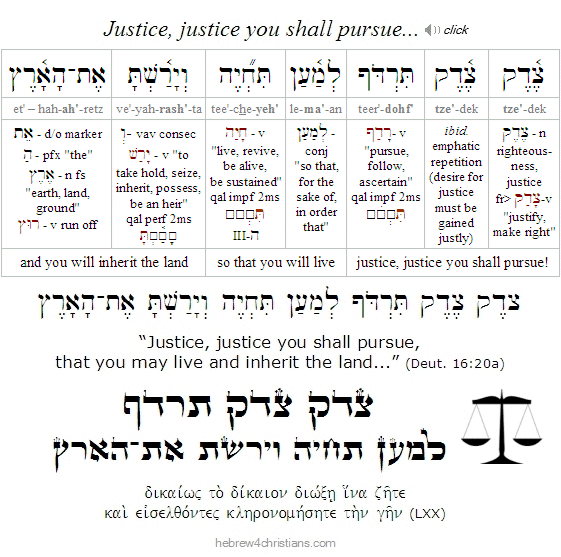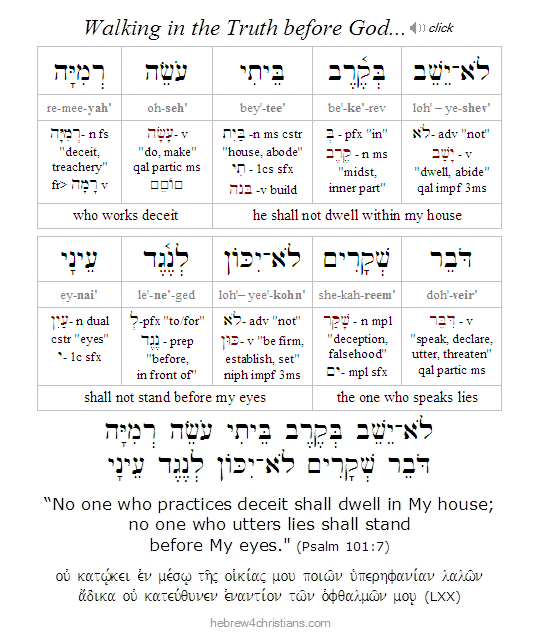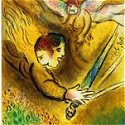|
Our Torah portion this week (Shoftim) includes the famous statement: tzedek, tzedek tirdorf (צֶדֶק צֶדֶק תִּרְדּף): "Righteousness, righteousness, you shall pursue" (Deut. 16:20). The sages infer that the double mention of the word "righteousness" means that the pursuit of righteousness must itself be righteous. In other words, the end never justifies the means. God is not a pragmatist, and there are no "noble lies" for sake of the Kingdom of Heaven. The truth is gained only by truth, and therefore we may not use unjust methods even to promote a supposedly just cause. For example, using propaganda to wage preemptive wars of aggression, torturing people for information, or spying on citizens for the sake of security -- all are direct violations of the Torah. Despite what the politicians might claim, without true justice, the future of a society is radically threatened. Indeed, there is a direct link between pursuing righteousness and welfare of people:
צֶדֶק צֶדֶק תִּרְדּף
לְמַעַן תִּחְיֶה וְיָרַשְׁתָּ אֶת־הָאָרֶץ
אֲשֶׁר־יְהוָה אֱלֹהֶיךָ נתֵן לָךְ
tze'·dek · tze'·dek · teer·dohf
le·ma'·an · tee·che·yeh · ve·ya·rash'·ta · et-ha·a'·retz
a·sher · Adonai · E·lo·he'·kha · no·ten · lakh

"Righteousness, righteousness, you must pursue;
so that you will live and inherit the land
that the LORD your God gives you."
(Deut. 16:20)

We derive restrictions against spying on others from Torah principles (עקרונות תורה). For example, we are not to "uncover the nakedness" of our neighbor (airport scanners), nor are we to listen to their private conversations (wireless phone tapping) or to engage in lashon hara (recording private conversations). Moreover, the priests were required to wear undergarments when serving at the altar, and whenever they traveled in the desert, Israel's tents did not face one another, to afford personal privacy and respect... The Torah is clear: you shall not uncover the nakedness of others (לא תְגַלֵּה עֶרְוָה).
A related implication is that we should never be deceptive about promoting faith in God. We shouldn't flatter people, cajole them into believing, offer them vain hope, or misrepresent the truth of the message of the gospel. We should never promise people worldly happiness, prosperity, unending health, etc., in the name of religion, since this also is "means-to-end" reasoning. We must be clear about the demands of faith and the costs involved. And of course it is entirely forbidden to endorse violence of any kind (verbal or physical) to promote the cause of religion. Indeed, a sure mark of a false religion is to teach people to hate or even murder others "for God's sake..." Any religion that is based on "jihad-mentality" is therefore false and subject to fearful judgment from Almighty God.
"Blessed is the man who makes the LORD his trust, and who does not turn to the proud or turn aside to lies" (Psalm 40:4); "no one who practices deceit shall dwell in my house; no one who utters lies shall continue before my eyes" (Psalm 101:7; Rev. 21:27).
לא־יֵשֵׁב בְּקֶרֶב בֵּיתִי עשֵׂה רְמִיָּה
דּבֵר שְׁקָרִים לא־יִכּוֹן לְנֶגֶד עֵינָי
loh-ye·shev · be'·ke'·rev · bey'·tee · oh·seh · re·mee·yah
doh·veir · she·kah·reem · loh-yee·kohn · le·ne'·ged · ei·nai

"No one who practices deceit shall dwell in my house;
no one who utters lies shall continue before my eyes."
(Psalm 101:7)

|




